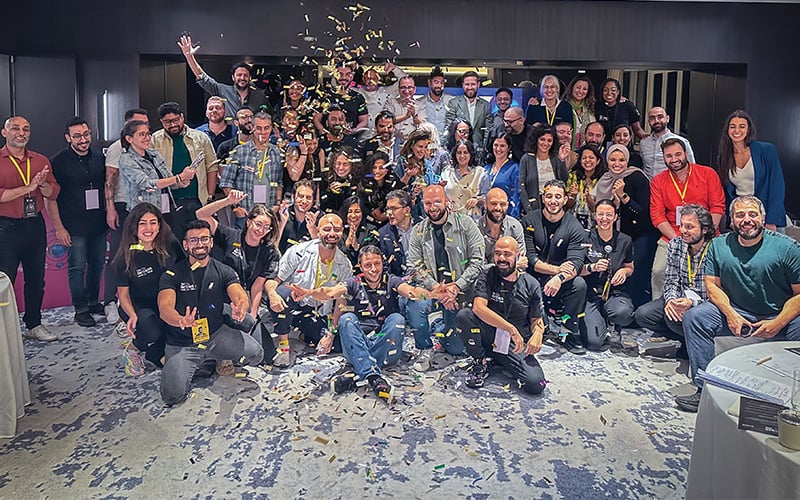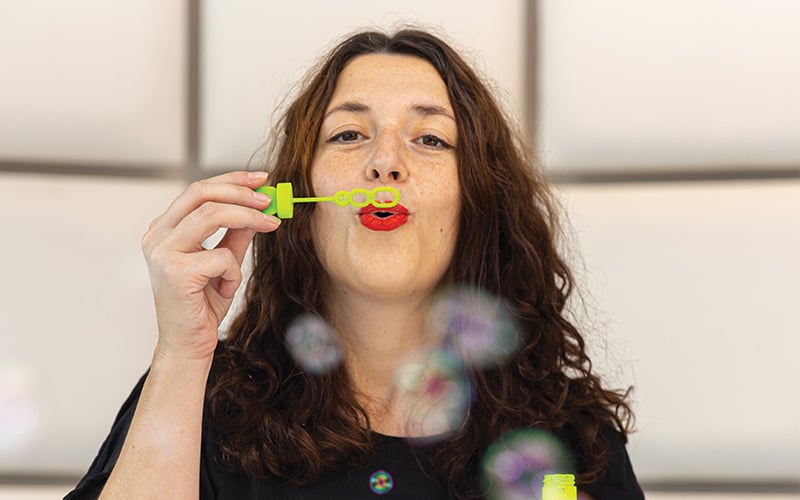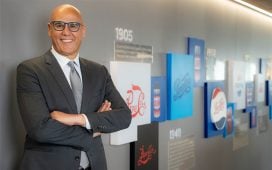
As I sit in a plane, heading to France for a Summit called “Connected Growth” and writing this article, I’m thinking that for someone, who used to hate group projects at school, my views have certainly evolved.
Today, I know– having experienced it many times over – that the better we work together as one, the more successful we are.
In the era of polycrises, unprecedented complexity and artificial intelligence, collaboration is both key to survival and the only road to success.
Publicis understood that a while ago with its “Power of One” operating model, something I have embraced with gusto. Then a couple of months ago, we launched a new initiative called “The Growth Club” which brings together a community of close to 80 people from around the region across all expertise from data, to experience, media, transformation and creative.
Since its launch, every time I explain what it is and why we are doing it, I talk about the importance of having a shared vision, investing in our talent, behaving like a collective, exchanging knowledge, of having a shared understanding. And all this is true.
But maybe there’s an even deeper reason behind such an initiative.
A couple of years ago, I went to Cannes for the Lions Festival. I couldn’t be more excited as it was both my first time ever being there in person and I was not just visiting but judging what is probably the most epic festival in the industry.
Every night after “judging duties”, I would take the train to Nice to visit my parents and in the train, I would often meet people who worked at the Palais du Festival or in surrounding hotels (no one who works in the service industry can afford to live in Cannes itself).
And sometimes, we would chat. One evening, a middle-aged hotel cleaner told me that generally people were nicer at the advertising festival than at the Cannes Film Festival. That gave me a measure of hope for our industry.

It seemed that our collective ego doesn’t quite compete yet with actual red carpet celebrities.
Another night, a seriously bulky and muscular security agent told me that he was often in charge of entry to the beach parties that the Croisette is known for.
His problem was that during the Lions everyone was (felt?) important so everyone had a reason why they should enter without a ticket, avoid queueing, or get VIP treatment, but his job was to follow the rules and it could be harrowing.
This sense of entitlement and ego is often what trips us up as an industry.
It’s easy to feel like a special snowflake. I certainly felt like one as I was “judging Cannes Lions”. And there are sooooo many trappings for our egos. From the fancy job titles (please don’t look a my job title, I blush when I’m asked what I do by people outside of the industry and vaguely respond that I work in “advertising)” to the big offices.
Even the work itself can stroke our ego, awards for instance can be self-indulgent, hitting a very primal personal desire for self-recognition, personal ambition and fame.
And we might think that it’s ok, just a boost in confidence, but research shows that the more you start to feel powerful and enjoy a position of privilege; the more qualities like empathy, fairness, and collaboration begin to fade (Google or ask Chat GPT about the “Cookie- Monster Study” for instance). This is the ego in action.
And here’s the thing: when you stay in your own bubble, your bubble doesn’t burst. It’s comfortable and easy.
But when you interact with other experts, when you talk to people who know more than you in different areas, when your ideas get challenged by fresh perspectives, when you are ready to reassess and self-correct your thoughts based on new information, when you give a genuine try to collaboration, it keeps you intellectually humble.
And the more you do it, the more those neural connections are reinforced – like a small walking path turning into a busy road – rewiring your brain away from the dreaded ego towards the genuine intellectual curiosity that we need to succeed as a team.
So a genuine thank you to all those who spend a significant amount of their time sharing ways that I am wrong, starting with my loving husband who is usually right.









